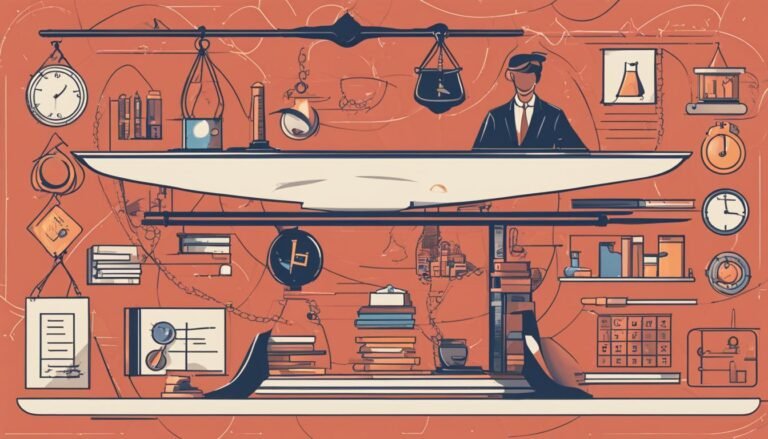Renting vs. Buying a Home: Which Is Best for You?
Are you torn between renting and buying a home? The decision can be complex, as it depends on various factors including your lifestyle, financial situation, and personal goals. While renting is often seen as “throwing money away,” buying a home is considered an investment.
However, the cost is not the only consideration. Your lifestyle, location preferences, and readiness to settle down also come into play. Additionally, economic factors such as inflation and interest rates can impact the renting vs. buying decision.
If you choose to rent, you’ll enjoy flexibility, lower upfront costs, and the landlord’s responsibility for maintenance and repairs. On the other hand, owning a home allows for customization, potential equity building, and long-term stability. But it also entails a larger financial commitment, ongoing expenses, and the responsibility for maintenance and repairs.
To make an informed decision, it’s essential to evaluate your individual circumstances. This article will explore the advantages of renting and buying a home, analyze the market, discuss financial considerations, and highlight the impact of long-term plans and lifestyle factors. Let’s dive in and discover which option is best for you.
Key Takeaways:
- Renting and buying a home depend on various factors such as lifestyle, financial situation, and personal goals.
- Renting offers flexibility, lower upfront costs, and limited responsibility.
- Buying a home provides stability, potential equity building, and the ability to customize.
- Economic factors like inflation and interest rates impact the renting vs. buying decision.
- Individual circumstances, preferences, and goals should guide your choice between renting and buying a home.
Advantages of Renting
Renting a home offers several benefits. Whether you are considering renting vs. owning a house, it’s essential to understand the advantages of renting.
- Flexibility: One of the primary benefits of renting is the flexibility it provides. As a tenant, you have the freedom to easily move to a new location after your lease ends, allowing you to explore different neighborhoods or adapt to changing circumstances.
- Predictable Expenses: Renting also comes with predictable monthly expenses. Unlike homeownership, where costs can fluctuate due to maintenance or unexpected repairs, renting allows you to know exactly how much you need to budget for rent, making financial planning easier.
- No Property Taxes or Homeowners Insurance: When you rent a home, you are not responsible for property taxes, homeowners insurance, or HOA fees. These costs are typically handled by the landlord, relieving you of additional financial burdens.
- No Maintenance or Repair Responsibilities: As a renter, you are not financially responsible for unexpected repairs or maintenance costs. Your landlord is typically responsible for these expenses, allowing you to save both time and money.
- Increasing Rental Supply: In recent years, there has been an increase in rental units, which has contributed to a slowdown in rent price growth. This means that renting can offer more affordable options, especially in areas with a high rental supply.
To summarize, renting provides flexibility, predictable expenses, avoidance of property taxes and homeowners insurance, freedom from maintenance and repair responsibilities, and the potential for more affordable housing options due to an increasing rental supply.
Benefits of Buying a Home
Buying a home offers numerous benefits that can make it an attractive option for many individuals. One of the advantages of homeownership is the ability to customize and renovate the property according to your specific needs and preferences. This allows you to create a living space tailored to your taste and lifestyle, providing a sense of comfort and satisfaction.
Furthermore, owning a home provides the potential for building equity over time. Real estate generally appreciates in value, allowing homeowners to accumulate equity as they pay off their mortgage and the property gains worth. This equity can be leveraged in the future for various financial purposes, such as accessing home equity loans or engaging in cash-out refinancing to fund other ventures or investments.
Homeownership also brings the advantage of potential tax deductions. One of the most notable deductions is the mortgage interest deduction, which allows you to reduce your taxable income by deducting the interest paid on your mortgage.
This can result in significant tax savings, particularly during the early years of mortgage repayment when interest payments are typically higher.
Moreover, buying a home provides long-term stability. It offers a sense of security and permanence, allowing you to establish roots in a community and become part of a neighborhood. Homeownership can foster a sense of pride and accomplishment, as owning a property reflects your personal achievements and goals.
That journey typically begins with a personalized search—check home options that match your lifestyle, community vibe, and preferred housing style. With the right guidance, narrowing down choices becomes less overwhelming and more aligned with how you see yourself living.
However, it’s important to consider the financial responsibilities associated with owning a home. Buying a home requires a substantial upfront investment, including a down payment and closing costs. Additionally, ongoing expenses such as property taxes, homeowners insurance, and repairs and maintenance are the homeowner’s responsibility.
Overall, the decision to buy a home should be carefully evaluated based on your financial situation, long-term goals, and personal preferences. Assessing the benefits and drawbacks of homeownership is crucial in determining whether it is the right path for you.
Renting vs. Buying Market Analysis
When considering the decision between renting and buying a home, conducting a thorough market analysis is essential. This analysis involves evaluating various factors, including market trends, housing prices, and interest rates, to help you make an informed choice that aligns with your financial goals and circumstances.
For renters, a market analysis can provide valuable insights into potential rental price fluctuations. By examining market trends, you can determine whether rental prices are likely to increase or decrease in the future. This information is crucial for budgeting and assessing the affordability of renting.
On the other hand, homebuyers need to take into account the current state of the housing market. This includes evaluating property values, demand, and available inventory. Understanding these factors can help determine the overall market conditions and inform your decision to buy a home.
Economic indicators, such as inflation and interest rates, also play a significant role in the market analysis. Inflation can impact the overall cost of living and housing expenses, while interest rates affect mortgage rates and the affordability of home financing options.
By considering all these factors and conducting a comprehensive market analysis, you can gain valuable insights into the renting vs. buying decision and make an informed choice that aligns with your financial situation and long-term goals.
Key factors to consider in market analysis:
- Market trends
- Housing prices
- Interest rates
- Rental price fluctuations
- Property values
- Demand and inventory
- Economic indicators (inflation and interest rates)
Financial Considerations
When making the rent vs. buy decision, it’s crucial to consider the financial aspects associated with each option. Renting generally requires less upfront costs compared to buying a home. With renting, there is typically no need for a large down payment or closing costs, making it a more affordable choice for those with limited savings.
On the other hand, buying a home involves a significant upfront financial commitment. Homebuyers need to be prepared to pay a down payment, which is usually a percentage of the home’s purchase price. Additionally, there are closing costs to consider, which include fees for loan application, appraisal, title search, and more.
Once the initial costs are accounted for, ongoing expenses also come into play. Renters have the advantage of budgeting for predictable monthly rental payments, which are often fixed for the duration of their lease. Homeowners, however, have additional financial responsibilities such as mortgage payments, property taxes, and homeowners insurance. These expenses can vary over time due to factors like interest rates and changes in property values.
Another financial factor to consider is your credit score. A good credit score can increase your chances of getting approved for a mortgage loan and negotiating favorable interest rates. On the other hand, a lower credit score may lead to higher interest rates, making homeownership more costly in the long run.
To determine the affordability of renting or buying a home, it’s important to evaluate these financial considerations based on your individual income, budget, and long-term financial goals. Consider consulting with a financial advisor or mortgage professional to help you make an informed decision.
Long-Term Plans and Lifestyle Factors
When deciding to rent or buy a home, it’s essential to consider long-term plans and lifestyle factors that will impact your decision. Renting may be more suitable for individuals who prioritize flexibility, such as those who frequently move or are uncertain about their future plans. By renting, you have the freedom to explore different neighborhoods, cities, or even countries without the hassle of selling a property. You can easily pick up and relocate when new opportunities arise or when your circumstances change.
On the other hand, homeownership may be more suitable for individuals who value stability and are ready to settle down for the long term. Owning a home provides a sense of security and permanence that renting cannot offer. If you have a family or plan on starting one, owning a home can provide stability and a place to call your own. It also allows you to establish roots in a community, build relationships with neighbors, and become a part of a neighborhood.
Location is another crucial factor when considering long-term plans and lifestyle preferences. Think about the desired location and how it aligns with your lifestyle. Whether you prefer the convenience of urban living, the quiet suburbs, or the tranquility of a rural setting, your housing decision should reflect your desired lifestyle. Consider proximity to work, schools, recreational activities, and other amenities that are important to you.
| Factors to Consider in Long-Term Plans and Lifestyle | Renting | Buying |
|---|---|---|
| Flexibility | ✓ | |
| Stability | ✓ | |
| Location | ✓ | ✓ |
| Customization | ✓ | |
| Rooted in a Community | ✓ |
Ultimately, the decision to rent or buy a home should align with your long-term plans and lifestyle factors. By carefully considering these factors, you can make an informed decision that meets your needs and fulfills your goals.
Renting vs. Buying and Equity Building
One significant difference between renting and buying a home is the opportunity for equity building. Homeowners accumulate equity over time as the property appreciates in value and the mortgage balance reduces. This equity can be accessed through options like home equity loans or cash-out refinances.
On the other hand, renters do not build equity, as they do not own the property. Understanding the potential for equity building is essential in the decision-making process between renting and buying a home.
If we evaluate the long-term financial implications of renting versus buying, equity building emerges as a crucial factor. As a homeowner, you have the opportunity to grow your wealth as your property’s value increases over time. Additionally, by paying down your mortgage, you build equity in your home, allowing you to tap into its value for future financial needs.
“Homeownership is an excellent way to build wealth and create a foundation for financial stability in the long run. The equity you build becomes an asset that can be leveraged for various purposes, such as funding education, starting a business, or providing a cushion for retirement.”
– Sarah Adams, Financial Advisor
Furthermore, Home Equity Lines of Credit (HELOCs) or refinancing options allow homeowners to access the equity they have built, providing financial flexibility and potential opportunities for investment or large expenses like home improvements.
| Equity Building Potential | Renting | Buying |
|---|---|---|
| Wealth Accumulation | No equity building | Potential for equity growth |
| Access to Funds | N/A | Home equity loans, cash-out refinances, or HELOCs |
| Asset Value | No asset building | Property appreciation and mortgage paydown |
Understanding the potential for equity building is a key component when using a Renting vs. Buying a Home Calculator. By considering the long-term financial benefits of homeownership, you can make an informed decision that aligns with your financial goals and aspirations.
Equity building is a crucial aspect to consider when deciding between renting and buying. This financial advantage provided by homeownership presents an opportunity for long-term wealth accumulation and financial stability.
Maintenance and Repair Responsibilities
In the renting vs. buying pros and cons debate, one important consideration is the difference in maintenance and repair responsibilities between renters and homeowners. Understanding these responsibilities is crucial in assessing the financial and time commitments associated with each option.
When you rent a home, the landlord is typically responsible for most maintenance and repairs. This means that if there’s a leaky roof, a broken appliance, or a plumbing issue, it’s the landlord’s responsibility to fix it. As a renter, you don’t have to worry about the cost or the hassle of finding reliable technicians or contractors.
On the other hand, if you decide to buy a home, you become solely responsible for all maintenance and repair costs. You’ll need to budget for expenses like replacing a roof, repairing or replacing appliances, and fixing any plumbing, electrical, or structural issues that may arise. Additionally, as a homeowner, you’ll need to invest your time in finding and coordinating with contractors and managing repair projects.
Quote: “As a renter, you don’t have to worry about the cost or the hassle of finding reliable technicians or contractors.”
To illustrate the potential cost implications, here is a table comparing the average annual maintenance and repair costs for renters and homeowners:
| Average Annual Maintenance and Repair Costs | |
|---|---|
| Renters | $500 – $1,000 |
| Homeowners | $1,000 – $3,000 |
Key Takeaways:
- Renters are generally not responsible for maintenance and repairs, as these are typically the landlord’s responsibility.
- Homeowners bear the full financial responsibility for maintenance and repairs, including the cost and coordination of hiring contractors.
- The average annual maintenance and repair costs for renters range from $500 to $1,000, while for homeowners, it can range from $1,000 to $3,000.
Understanding the maintenance and repair responsibilities is an essential part of weighing the pros and cons of renting vs. buying a home. Renting relieves you of the financial burden and time commitment associated with repairs, while homeownership requires careful budgeting and coordination to handle maintenance and repairs effectively.
Insurance and Tax Considerations
When considering the decision between renting and owning a home, it is essential to understand the differences in insurance and tax implications. These factors can have a significant impact on the overall cost and financial benefits of each option.
For renters, insurance requirements are generally straightforward. Renters typically only need to have renters insurance, which covers their personal belongings and provides liability protection. This insurance ensures that in the event of theft, damage, or liability claims, renters are protected financially. It is crucial for renters to evaluate their insurance needs and choose a policy that adequately covers their possessions and protects against any potential liability issues.
On the other hand, homeowners have more complex insurance requirements. Homeowners insurance is a necessity for those who own a home. This type of insurance provides coverage for the dwelling, personal belongings, and liability. Homeowners insurance protects against risks such as fire, theft, natural disasters, and liability claims. It is vital for homeowners to carefully review and select a comprehensive homeowners insurance policy that adequately covers their property and assets.
Quote: “Renters typically only need to have renters insurance, which covers their personal belongings and provides liability protection.”
When it comes to taxes, homeowners have the advantage of certain deductions that can help offset some of the costs associated with owning a home. The most significant tax benefit for homeowners is the mortgage interest deduction. Homeowners can deduct the interest paid on their mortgage loan from their taxable income, reducing their overall tax liability. Additionally, property tax deductions can help homeowners save on their annual tax payments. It is important for homeowners to consult with a tax professional to understand the specific deductions they are eligible for and how it impacts their overall tax situation.
Renters, on the other hand, do not typically have access to the same tax benefits as homeowners. Since they do not own the property, they are not responsible for property taxes. However, it is important for renters to note that they may still be eligible for certain tax deductions, such as deductions for educational expenses or business-related expenses, depending on their individual circumstances. Consulting with a tax professional can help renters identify any applicable deductions and ensure they are optimizing their tax benefits.
Quote: “The most significant tax benefit for homeowners is the mortgage interest deduction.”
Understanding the insurance and tax implications of renting vs. owning a home is crucial in making an informed decision. Renters must assess their insurance needs and choose a policy that provides adequate coverage, while homeowners should carefully review and select a comprehensive homeowners insurance policy. Homeowners also benefit from tax deductions such as mortgage interest and property tax deductions, which can help offset the costs associated with homeownership. Evaluating these insurance and tax considerations helps individuals compare the costs and benefits of renting vs. buying a home.
Conclusion
Deciding whether to rent or buy a home is a personal choice that depends on many factors. When considering the pros and cons of each option, it becomes clear that renting offers flexibility, lower upfront costs, and limited responsibilities. On the other hand, buying provides stability, potential equity building, and the freedom to customize your living space.
In order to make an informed decision, it is crucial to evaluate financial considerations, long-term plans, lifestyle factors, and market analysis. Consider your budget, income, and long-term financial goals when thinking about the financial aspects of renting vs. buying. Reflect on your lifestyle, future plans, and desired location to determine which option aligns best with your needs.
Furthermore, taking into account the housing market analysis, including trends, pricing, and interest rates, can guide your decision-making process. Analyzing the market conditions can provide insights into the affordability of renting or buying a home.
Ultimately, when deciding whether to rent or buy a home, it is important to remember that the choice is unique to each individual. Assessing your personal circumstances, preferences, and goals is key to making the right decision that will suit your lifestyle and financial situation.







